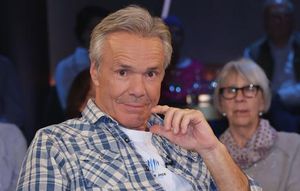Peter Dutton, the Leader of the Opposition, has made headlines with his recent criticism of diversity and inclusion (DEI) initiatives within the Australian public service. Speaking during his first major policy address of 2025, Dutton vowed to scale back the public service, claiming it would lead to greater efficiency and financial prudence. This move closely mirrors the rhetoric of former U.S. President Donald Trump, who has also taken steps to limit DEI programs.
During the speech delivered on January 31, Dutton stated, "Such positions, as I say, do nothing to improve the lives of everyday Australians." He questioned the effectiveness of positions such as cultural diversity advisers, change managers, and internal communication specialists, arguing they do not constitute frontline roles aimed at directly benefiting the public.
Dutton's stance promotes the idea of reducing what he deems bureaucratic waste, as he explained the rationale behind his proposal to eliminate these positions: "My economic team’s objectives are clear: we will cut wasteful spending, stop inflationary spending, and restore prudent spending." He attributed the increase of 36,000 new public service roles to the current Labor government's policies, declaring these additions as overly extravagant and impractical.
Prime Minister Anthony Albanese responded sharply to Dutton's claims, indicating serious concerns about the impact of such cuts. Albanese suggested these moves could result in longer wait times for government services and impede various federal initiatives, including the implementation of the Aukus deal and efforts to fortify disability services.
Critics have voiced their disapproval of Dutton's approach, particularly from the Community and Public Sector Union. National secretary Melissa Donnelly argued, "What Mr Dutton fails to comprehend is... Having staff with lived experience of disability, for example, means the NDIA has a more comprehensive ability to improve and effectively target disability services to Australians." Donnelly echoed sentiments from various public sector workers, emphasizing the importance and necessity of representation within bureaucratic roles.
This debate highlights the broader conversation about public service efficiency versus inclusivity. It raises questions about how the Australian government can best serve its citizens and whether cutting DEI positions genuinely benefits the public. Advocates for diversity argue these roles are not merely bureaucratic but are integral to providing services sensitive to the needs of various communities.
Many fear Dutton’s proposals could jeopardize longstanding efforts to tackle systemic discrimination within public services. The Australian public is increasingly aware of the necessity for representation within its bureaucracy, recognizing the added value of having people who grasp the realities of varied Australian lives working within federal agencies. Donnelly reacted strongly to Dutton's position, noting it emulates strategies used by Trump to dismantle such support systems, which are key in addressing historical inequalities.
Adding to the complexity of the discussion, Dutton also plans to consolidate various governmental roles and restrict spending on programs he believes do not yield tangible benefits. For example, he stated, "We will protect front-line positions... but overall, we will drive greater efficiency and productivity... I want to see more money spent on front-line services which make a difference."
Many believe this vision reflects outdated understandings of government service, where roles focused on diversity and inclusion are increasingly deemed less relevant. Dutton’s critics argue this perspective can endanger the effectiveness of public agencies dedicated to serving marginalized communities.
Yet, Dutton remains firm on his plans, believing they will resonate with voters concerned about rising public spending. By promising budget constraints, he aims to capture the sentiments of Australians who feel burdened by government expenditure. The juxtaposition of fiscal responsibility against the need for inclusivity poses a real quandary for the opposition as they seek to define their policy platform leading up to the next federal election.
With the Liberal Party’s renewed focus on governmental efficiency and proposed cuts to DEI programs, it appears this debate will linger throughout the political discourse leading to the upcoming elections. The conversation surrounding the necessity of representation and equity within Australian public services is increasingly relevant, as citizens grapple with the impacts of both government policies and societal expectations.
Dutton’s strategy may resonate with some constituents worried about wasteful spending, yet the vehement pushback from union leaders and policy advocates emphasizes the intricacies of modern governance. The issue of ensuring adequate public service representation against the backdrop of fiscal prudence is not just political—it’s personal for many Australians who see themselves represented or marginalized by the very policies being discussed.
This complex, contentious debate over the role of diversity within governance will undoubtedly play out on the public stage, drawing attention to the values and principles guiding contemporary policy decisions. Only time will reveal the ultimate impacts of these discussions on everyday Australian lives as the nation progresses forward.



